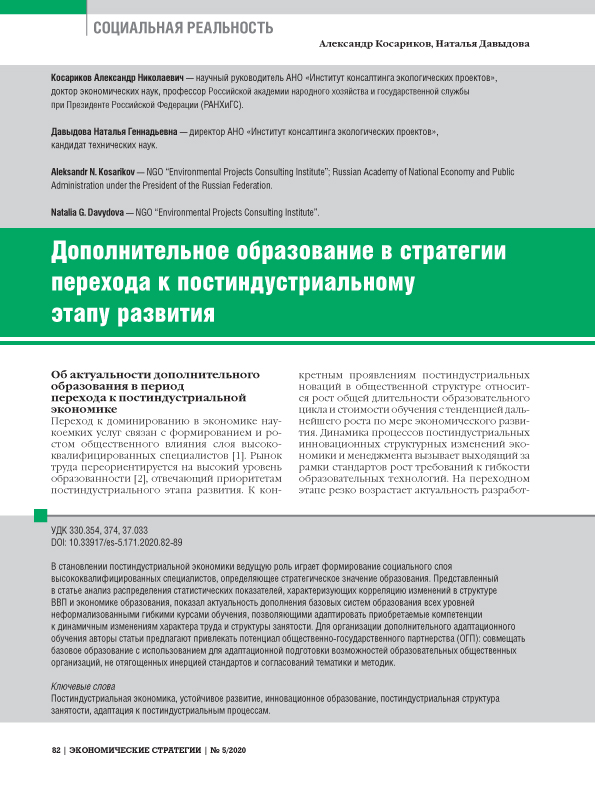Supplementary Education Within Transition Strategy Towards Post-Industrial Development Stage
DOI: 10.33917/es-5.171.2020.82-89
The lead role in the post-industrial economy’s establishment of the social layer of highly qualified specialists’ formation determines the strategic importance of education. The article presents an analysis of the statistical indicators distribution characterizing the correlation of changes in the structure of GDP and economics of education. The analysis showed the relevance of supplementing basic education systems at all levels with informal flexible training courses. These courses allow adapting the acquired competencies to dynamic changes in the nature of labor and the structure of employment. The prospects of attracting potential of public-state partnership for the organization of additional adaptive training are considered. In such a case, basic education is combined with capabilities of educational public organizations that are not bound by the inertia of standards and agreeing on topics and methods



